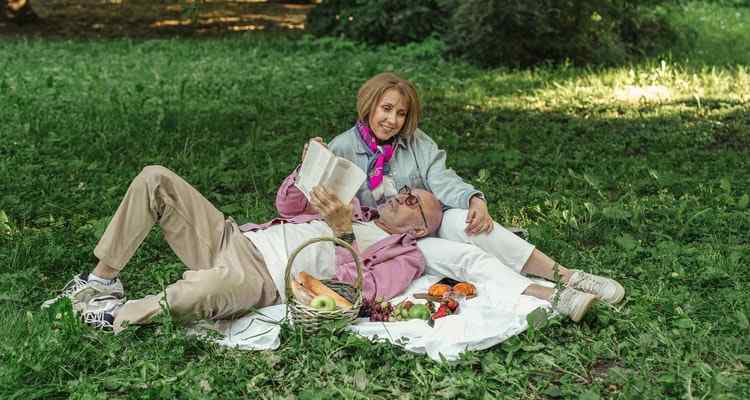I don’t have a child and I am not a parent. I am childfree by choice. Some people call it voluntary childlessness. Although many like me chose the word “childfree” because “childless” brings with it the notion of “lessness” or a lack of something. It is only appropriate to attach our sentiment with the word free because it was a choice to be without a child. People like me prefer a life free of a child.
I have a family. My family consists of my partner, my cats, my sister, my parents, my husband’s parents, his siblings. We live in different cities but we are, of course, a family, rushing to each others’ rescue when needed, planning our schedules to be able to spend quality time with each other. I also have a few very close friends who feel like family.
But if you mean “a group of individuals living under one roof”, my family consists of my husband, my two cats, and I. We look after each other. We make plans for the future together. We have group goals and dreams. Health insurance – family plan. We get upset with each other at times, we complain, we address those complaints, we adjust, we commit, we laugh, we love. This is my family.
Without a human child in the house, many people ask, “When do you plan on starting a family?” My family is right here. Before my cats, my husband and I were the two members of that family. Before I was married and I lived alone in the city I worked in, my family unit consisted of myself. A family out of a childfree marriage is still a family.
Reasons To Go Childfree – Why Childfree By Choice?
Table of Contents
I, deliberately, chose to talk about my childfree-ness in the “I” form, and not on behalf of my partner. First, it would be unfair to speak on his behalf. Although, he has me convinced that he feels the same way as I do, and I trust him. But second, and most importantly, men do not get asked this question as many times, or at least not in the same way as women do. When addressed to men, it’s a question loaded with curiosity, and at times concern. But when addressed to women, this question at its core tastes of judgment and complete bafflement at her “audacity” to think otherwise.
Each individual who is childfree by choice might have their own reasons to be childfree or prefer being without a child. The childfree by choice movement is led by people who might find it futile to have children in a world that seems to be collapsing. Some might find it criminal to bring a child into such a world, for both environmental or political reasons, or either of them.
Related Reading: Here Is A List Of Ways To Deal With Societal Pressure To Get Pregnant
Some people choose not to have children because they think they are not fit to have them. By not fit, they could mean, not feeling ready to, not finding their financial condition suitable to supporting another human being. They could also mean that they do not find their physical or mental health conducive to having a child.
Someone might simply not feel in them the desire to have a child. For many, this thought of simply not feeling like it is difficult to imagine because our minds are trained to look at the growth of an individual and a society only in a set way. Deviate from this pattern and it baffles those looking at your choices from the outside.
Some do not want to birth a child but have plans to adopt a child should they feel ready and excited to do so in the future. Their argument– There are many uncared for children in the world who need parents. That there are these many neglected, abandoned, children in the world, is proof in itself, that people birth children all the time when they weren’t ready for it.
Answering The Questions Aimed At A Childfree Person
Imagine a scenario of a conversation between a person who is childfree by choice with any other person. Let that childfree person be me, and the other person B. B says, “When do you plan to have a child?” I say , “I don’t plan to have a child.” B says, “No! When? The clock is ticking. Time is running out.” I say, “I don’t want a child.” B says, “But it will be too late, when you want it later.” I say, “Too late for what? I do not want a child.” B says, “But… you will change your mind and then you will regret it.” I say, “Maybe I will. Maybe I won’t. Maybe you will regret having a child. Maybe you won’t.” B says, “But…?”
You see how it goes. The person sounds like they have completely lost the point of the conversation. They find it extremely difficult to understand that you can not give arguments in favor of something to someone who does not want that thing in the first place. If you do not want something, how could you be late for it? If you do not want to watch the film Sex Lives of the Potato Men, would it help if I kept telling you how you are going to be late for the show?
All of us have desires, preferences and the ability to accordingly make a choice. Some humans like to read, some don’t. Some of us feel we are good at the jobs we do. Some of us hate our jobs. Not everyone wants to be a doctor. Not everyone likes to cook. Not everyone wants to be a parent – someone might, someone might not.
I am convinced that having a child should be preceded by an urge or a desire to have a child, and not simply an assumption that that is the only way to be. Deciding to have a baby should be as conscious and deliberate an action, as deciding not to have a baby. It should be the product of a conscious relationship with your partner.
You are not supposed to have a child. You choose to. The same way you choose not to!
Regardless, here are some questions people who remain childfree by choice are often faced with.
“What about your maternal instinct?”

Many people give the argument of the “maternal instinct”. That every woman would have an innate biological desire in her to be a mother. In her book, Childfree by Choice: The Movement Redefining Family and Creating a New Age of Independence, Dr Amy Blackstone points out how Sage Publishing’s three volume encyclopedia on motherhood doesn’t have a single entry on maternal instinct. She calls maternal instinct merely a figment of our cultural imaginations, a social construct.
Maternal instinct, in the study of the animal kingdom, refers to the instinct that a mother (not a female) has to nurture and protect her child, and I don’t deny it. The human construct, however, replaces mother with woman and urges that every woman must have an instinct to be a mother. This construct is intended toward organizing labor inside and outside the home. That is the purpose of “gender roles”. They force us to know our place in the world and dissuade us from challenging the status quo.
“Don’t you want to take your family line forward?”
Other people talk about the importance of the succession of your family line, heirhood, extension of your genes. Very crudely, I think to myself, “What are you, Alexander, The Great?” But I do not say it. Instead, I like to point out to such people the case of Queen Elizabeth I, who remained childfree by choice. She could avoid having children at the time by making sure she did not marry.
Queen Elizabeth’s period, known as the Elizabethan Era, is widely called by historians as the Golden Age, marked by the English Renaissance, the blossoming of art, literature, and poetry, but most noticeably of theater (Recall William Shakespeare). From a political point of view, it was a time of English exploration and expansion and the burgeoning of Protestant Reformation. Motherhood or career – she clearly chose the second one and made a bigger contribution to society.
All in all, it wouldn’t be far-fetched to say that what Queen Elizabeth left behind was a legacy. And that is what we should be focusing on. What one leaves behind must be seen subjectively. The focus should be on having a legacy and not simply a genetic heir.
If the demand of our times calls for austerity, sustainability, environmental rejuvenation, for the sake of argument, how much and what you physically leave behind will be called your “carbon footprint”. Especially in a time like “now”, I feel, we should care more about the legacy we leave behind in the form of the work we do, the influence we have, and the difference we make.
Related Reading: Worst Parenting Mistakes We Always Make And Should Immediately Correct
“You will regret not having kids later!”
“You will regret not having kids later.” Another point I wish to address. Regret is completely subjective, and God, the almighty, Himself, wouldn’t dare attach certainty to a word like regret. It is better to say, “You might regret it later.” My answer would be “Yes, I might. But just as much as you might regret having a child.” Yes, many women admit in private, or anonymously, very few publicly, that they regret having a child.
To take the risk to live with regret is a personal choice. Many childfree people are convinced that the regret of not having kids has far fewer adverse consequences than the regret of having a child. As good advice goes – to consider the long list of things to discuss before marriage and before childbearing – most childfree by choice couples have given it a thorough thought. They are far more prepared for any regret than they are given credit for.
“The biological clock is ticking!”
Yet again, I am not late at something I do not want. Let the clock tick away! It doesn’t seem very wise to have something you are sure you do not want, fearing that you might, you just might, want tomorrow. Especially when that something is a human being.
Moreover, individuals who are childfree by choice have other ways to fulfill the urge to have a child, raise a child, support a child, should that urge arise in the future. Adoption, fostering, sponsoring are some of the many noble options to quench that desire to be of service to the agenda of the propagation of our species or of its welfare.

“What will you do in your old age?”
A child is not a retirement plan. Period. A child is also not a Plan B for our unfulfilled aspirations.
In fact, it is not only selfish but also cruel to bring a child who otherwise didn’t even exist, so that you would have someone to take care of you in your old age. That sort of emotional burden on a human being, that they are obliged to repay their parent’s debts, is often dealt with on a therapist’s couch.
It is advisable to have better, more practical contingency plans for old age. Nurture meaningful bonds. Invest time and effort in financial education and take charge of your finances. Prioritize good mental and physical health! Have a self-reliant contingency plan.
“Do you hate children?”
Children are unique, complex individuals and must not be generalized into a homogeneous group. They are not a bunch of flowers or a fancy gift hamper that one must love as a “category” because, well, “what’s not to like?”
Do I dislike children? No, I don’t. Just the way I do not assume that I dislike all adult people. I approach people with the assumption that I would like them. But some people I like more than the others. Some I tolerate. Some I don’t. The same with children.
“You are selfish!”
I am not selfish. If at all, I am concerned about the emotional, mental and physical well-being of children. Which is why I believe children should be born out of a more serious deliberation, self-analysis and self-evaluation by the parents, rather than a thoughtless supposition of it being the only way to be. From that sense, the childfree by choice movement is extremely pro-child.
If one were to look at the questions in this list, each of them is extremely self-centered. In fact, pick up any “should I have a baby” questionnaire, most of the things on the list are naturally about yourself. They are concerns about one’s own feelings, our aspirations, expectations of the society, our fears of the future, our guilt and regrets. None of the questions have anything to do with the child.
The truth is, if one were to concern themselves solely with the well-being of the child who is to be born, one would have to make the same evaluations that are at the center of the childfree by choice preoccupation. There is nothing wrong with asking these questions or being concerned about the self. It is a sign of understanding the magnitude of the responsibility of raising a child.
Related Reading: 7 Fundamentals Of Commitment In A Marriage
I have memories from my childhood, of role-playing a journey through an imaginary storm, protecting a little bundle in my arms that was my doll, with the corner of a makeshift sari I would make with my mother’s shawl.
But I am not sure if she was my imaginary daughter and I her mother. That story was more about myself. It was an adventure I was on, and on that adventure my doll would sometimes replace a dog. Me and my dog, finding our way across a sandstorm. I also remember walking through that storm as the leader of an imaginary tribe, showing them the way.
That tribe was my family. What I make out from these memories of nurturing a doll, leading a tribe is not that I wanted to be a mother, but that I always had the instinct to nurture, to protect and to lead. I try to do that as much as I can today, in my social circle, with my friends and my family.
Why I Decided To Go For Surrogacy Or Adoption Despite Being Able To Give Birth
Ask Our Expert
You must be Logged in to ask a question.



Featured
What Is A Power Couple? 15 Signs You And Your Partner Are One
What Is The Role Of A Husband In A Modern Relationship?
Marrying An Older Woman: Pros And Cons, And How To Make It Work
Everything You Need To Know About Transactional Relationships
Premarital Counseling – 12 Reasons You Should Opt For It
Living Apart Together: Decoding The Latest Trend Said To Save Relationships
Domestic Partnership vs Marriage: Difference & Benefits
Marrying For Money: Is It The Right Choice For You And How To Make It Work?
21 Things To Know When Dating A Man With Kids
Surprising Psychological Benefits Of Women Proposing To Men And 19 Ways To Do It Right
A Guide To Platonic Marriage
The Ultimate Wedding Plan Guide
10 Reasons Why Men Don’t Want To Get Married Anymore
Who Is A Trophy Husband
How Do I Stop Begging For Attention In A Relationship?
Why You Should Consider A Prenup After Marriage
33 Matching Bios For Couples – Cute Instagram Bios
9 Polyamorous Relationship Rules According To An Expert
9 Home Essentials For Newlyweds
The 9 Things A Woman Must Keep In Mind For A Prenup